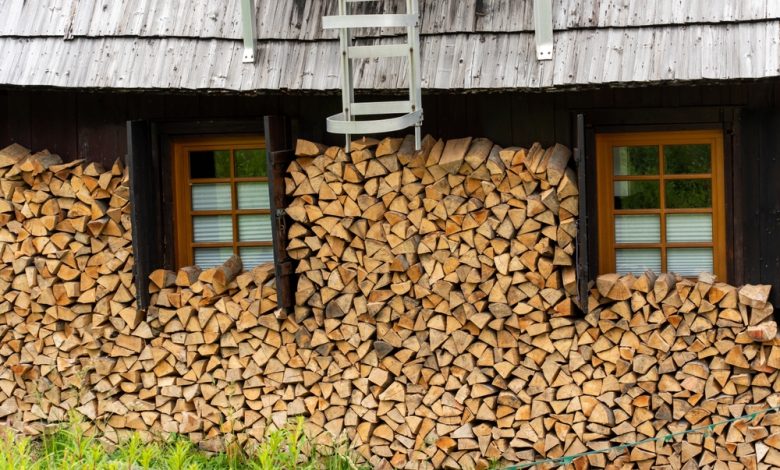The Philosophy of a Prepared Life – Survivopedia

True freedom is not the ability to do anything we want; it is the discipline to do what is right and necessary. In a prepper’s life, this truth is visible every day. At dawn, a homesteader splits firewood to warm the home through winter. In the afternoon, his wife tends the garden and the livestock. By evening, the family gathers around a table filled with food they have stored for the seasons ahead. This daily rhythm of labor and care reflects more than habit. It is a sign of responsibility and devotion. For a Christian prepper family, that devotion is strengthened by faith. They understand that freedom includes duty, and their faith gives that duty meaning. In their home, hard work, self-reliance, and trust in God are woven together.

True Freedom Demands Responsibility
Preparedness and freedom are closely connected. Anyone living off the grid or maintaining a self-sufficient homestead knows that real independence requires effort. A warm house in winter comes from cutting, stacking, and tending firewood. A pantry filled with food comes from planting, harvesting, and preserving the harvest.
Scripture supports this truth: “The prudent see danger and take refuge, but the simple keep going and pay the penalty” (Proverbs 27:12). Wise people see what is coming and act with foresight. Foolish people ignore warning signs and suffer because of it. For Christians, freedom—both spiritual and practical—does not allow for idleness. It requires care for those entrusted to us and attention to their safety and well-being, even in hard times.
The story of Joseph in Egypt offers a clear example. When God revealed the coming famine, Joseph stored grain for seven years. When drought arrived, those stores fed an entire nation. His obedience showed that preparation is not a sign of doubt but of wisdom and stewardship. He trusted God’s warning and fulfilled his duty, saving others from hunger. In the same way, storing food or chopping firewood is an act of love and foresight. The New Testament reminds us that anyone who fails to provide for their family denies the faith (1 Timothy 5:8). Freedom grows when every person accepts their share of responsibility. By taking that burden willingly, we find peace and true independence.
Stewardship and Purpose in Everyday Chores
On a prepared homestead, even simple chores carry spiritual weight. Feeding chickens, milking goats, or chopping onions from the garden are all acts of stewardship. The Bible teaches that we are called to be faithful caretakers of the resources God has placed in our hands. Caring for land and animals is not only practical work but a way to honor the Creator and serve loved ones.
A homeschooling mother, for example, practices stewardship when she teaches her children or keeps the household running. Her lessons, meals, and handmade goods all express creativity and dedication. There is dignity in this labor. It is not drudgery but a form of worship, a daily offering of effort that honors God’s gifts.
Maintaining a homestead demands discipline. Rising early to haul water or weed the garden strengthens both body and spirit. A family that commits to daily work for God’s glory reflects His order and purpose. Gratitude changes routine into joy. When firewood is stacked before the first snowfall, the family can give thanks for the strength to gather it. When the barn is cleaned or the coop refreshed, they remember that caring for animals was part of humanity’s first task in Eden.
Each jar of preserved food and each split log stands as proof of diligence. The old saying still holds true: pray for a good harvest and continue hoeing. Faith joins with effort to bring blessing.
Teaching Self-Reliance as Love and Discipleship
Parents who prepare give their children a precious gift: confidence in their own abilities. Teaching a child to plant, cook, repair, or store food shows love and builds strength. Helping with chores does not cause fear; it creates a sense of contribution and pride. When children see their parents meeting challenges with determination, they learn to do the same. When they are guided to handle daily needs, they grow capable and compassionate.
This training is a form of discipleship. It passes down both values and skills. When a child tends a garden, they learn patience through waiting for the harvest and faith through trusting God for growth. When they learn to care for others or mend what is broken, they develop compassion and courage. Proverbs 22:6 urges parents to train a child in the way he should go. That training includes both spiritual lessons and practical instruction.
A child taught to cook, farm, or build will later use those skills to serve others. True self-reliance creates helpers, not hermits. Christian love expresses itself through action. The Apostle James wrote that faith without works is dead. Preparing together as a family turns faith into daily practice. As one prepper parent explained, “We do not prepare out of fear. We prepare because we have faith that our actions reduce risk.” Children raised in faith and diligence grow wise rather than anxious. They learn that steady work guided by trust in God brings peace and readiness.
Drawing Strength from Faith in Uncertain Times
For the Christian prepper, faith is the strongest foundation. Supplies may carry the body through a crisis, but faith carries the heart. A prepared life includes both physical readiness and spiritual devotion. Prayer and Scripture reading stand beside gardening and building as essential daily acts. Many families begin the morning with God’s Word before tending the land or schooling their children. They may pray before planting or give thanks while gathering eggs. These habits keep attention on God’s care and remind everyone that true success comes from His blessing.
When news brings worry or storms threaten, faith provides calm. A Bible open on the kitchen table can steady a heart more than any tool in the shed. Not all troubles can be prevented. Crops may fail, and plans may change. In those moments, believers turn to promises such as “God is our refuge and strength, an ever-present help in trouble” (Psalm 46:1). A family may gather by lamplight and read Psalms when the power is out, finding courage in God’s constant presence.
This strength of spirit is what gives meaning to preparedness. A faithful heart faces each challenge with prayer and practical action. Jesus reminded His followers that God feeds the birds of the air. This truth calls us to trust, even while we store provisions and plan ahead. Diligence and trust belong together. Faith removes fear and anchors hope.

Preparedness also points outward. It is not only about survival but about service. A family that trusts God’s provision shares their blessings. They remember Joseph opening Egypt’s storehouses to feed the hungry. Their confidence rests not only in stocked shelves but in the goodness of God.
Freedom, faith, and daily labor come together in this philosophy. We live freely when we accept responsibility. We find purpose when our duty is guided by Christ. Each act of preparation—each meal preserved, each log stacked, each prayer spoken—brings those truths to life.
In conclusion
A prepared life is a life of freedom, because dependence and fear no longer control it. It is a life of faith, because every step is taken under God’s guidance. It is a life of firewood, where work is steady and hope is stored in both pantries and hearts. Such a life may be demanding, but it yields peace, strength, and gratitude. It builds families, blesses communities, and honors the Lord who grants true freedom.
Keep the faith. Keep the woodpile ready. Live each day with diligence and devotion. Whatever the future brings, your home will stand firm in faith, courage, and the warmth of well-tended fires.
Read the full article here









